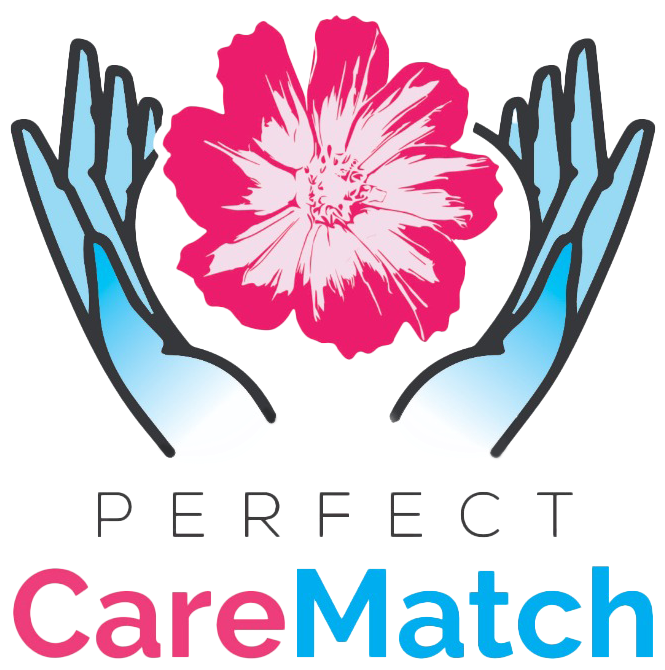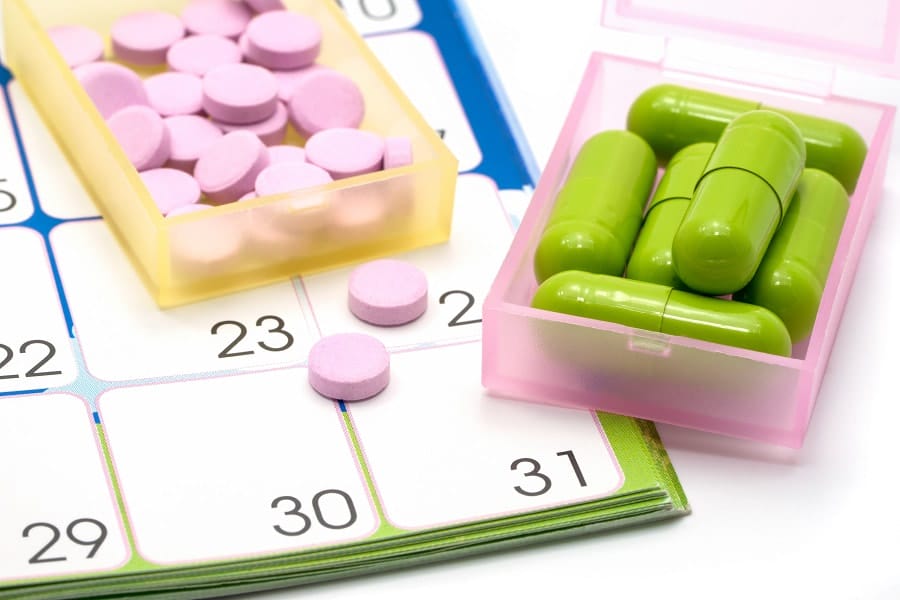Medication management is critical for staying healthy and independent
So many pill bottles…
According to Current Clinical Pharmacology, “Prescription drug use by older adults can often result in adverse drug events that contribute to hospitalization, increased duration of illness, nursing home placement, falls, and fractures. Older adults are more likely to use medications long term, increasing their risk of physical and mental harm.”
How does Perfect Care Match help seniors manage medications?
Our experienced nursing staff monitors not only the client’s overall health and safety, but also manages and oversees medications; they teach clients and families how to manage medication for elderly loved ones. Clients receive medication reminders and oversight from our in-home caregiver staff. With a wealth of knowledge and resources, Perfect Care Match’s dedicated careers assist seniors in maintaining their health with an appropriate, informed medication regimen.
Polypharmacy
Two areas of high concern regarding polypharmacy, or long-term use of 5 or more medicines, are potentially harmful drug-disease interactions and the use of high-risk medications in older adults. Sometimes the side-effects outweigh the benefit of the drug. Elders experience diminished quality of life as well as loss of independence if medicines aren’t taken properly or if they cause debilitating side effects. The American Geriatric Society uses a tool called the Beers criteria to evaluate polypharmacy risk factors. Furthermore, it should be noted that older adults who consume alcohol experience more serious problems when they take medications, even as prescribed. It is crucial that the prescriber be advised of any and all alcohol consumption.
There are 5 classes of drugs, and at least 34 specific drugs, best avoided by the elderly population:
- Antihistamines-first-generation allergy medications such as diphenhydramine, also found in OTC sleep aids, such as Tylenol PM
- Opioids-narcotic pain medications such as oxycodone and hydrocodone
- Sleep aids-both prescription and over-the-counter, such as zzzQuil, Zolpidem, and Eszopiclone. Benzodiazepines like Temazepam and Flurazepam are prescribed for insomnia.
- NSAIDs-pain medications such as ibuprofen, aspirin, and naproxen
- Benzodiazepines-medications used to treat anxiety: lorazepam, diazepam, and alprazolam.
Successful self-administration requires both cognition and physical ability
Seniors and their family caregivers are often able to manage medications independently after being educated about the subject. Knowing what each medicine is called and what it treats is difficult; writing everything down is perfectly acceptable. Perfect Care Match’s nurses teach medicine management, such as how to set-up meds for the week or using alarms as a reminder. Sometimes clients become too confused and forget to take them; or alternatively, take more than prescribed, forgetting that they already took them. Poor judgment and apathy related to a mental health issue or dementia reduce the likelihood of medication adherence. Many are unable to access the meds due to packaging. Decreased dexterity and poor eyesight make tasks like drawing up and administering insulin a very challenging task. When someone’s physical or cognitive abilities are impaired, there is serious potential for harm when self-managing medications.
Look to the Pharmacist
Pharmacies have really been stepping up their games for patients, The pandemic brought much-needed and improved home delivery. Pharmacists can recommend tips and tools for effective med management, then send it along with the delivery driver. Speaking of pharmacies, stick to only one; the reason for this is to have one single medication profile, all in one place. Sometimes that’s not an option: for example, if the person needs compounding services or specialized therapeutics received directly from the manufacturer. If this is the case, all pharmacies and prescribers should receive regularly updated med profiles.
If you or your loved one needs help to organize, understand, and streamline the medication process, Perfect Care Match is here to provide in-home medical and personal care, and we’re just a phone call away at: (774) 309-3021.

